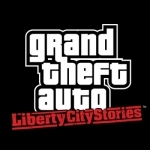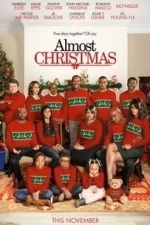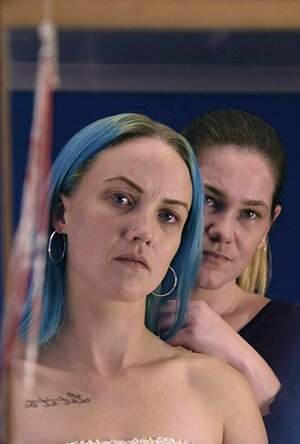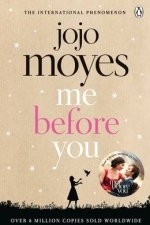Kristy H (1252 KP) rated In a Holidaze in Books
Oct 29, 2020
"So I ask the universe, simply: Can you show me what will make me happy?"
I know I must have read this synopsis when I requested this book, but I didn't reread it before starting, because hello, CLo, enough said. So I was slightly surprised by the Groundhog Day-esque story to this one, but I went with the flow. Luckily Mae is funny and charming enough to make just about anything fly, even a crazy time loop plot where you're not exactly sure how or why she's in it or quite what she's supposed to do to get out of it.
"'I think it's possible I'm in the past, repeating the same holiday, and I'm the only one who knows it.'"
It took a little while for the romance to heat up here, but once it did, the book was off and running. And boom! It's a sweet read, but flirty and romantic too. I loved Mae and her crush--they crackled and simmered. Honestly, the time loop piece was secondary to their joyful love. Seeing Mae come into her own made everything else less important, including Mae's reliving of her holiday. (And I enjoyed how she took to it so quickly--don't eat that, you're going to need this, tell me a secret so I can prove this to you next time--you go girl, embrace the loop!).
So, yes, while this book is a little crazy, it's also sweet and happy, too. It's a perfect Christmas read for a snowy day (or a fall day when you feel like the world is falling apart). 4 stars.
Gareth von Kallenbach (980 KP) rated Almost Christmas (2016) in Movies
Jul 12, 2019
This year is the family’s first Christmas since the death of Walter’s wife, Grace, and the film flashes back to show us a beautiful 45 year relationship, that even when their home overflowed with children, they kept their love and affection.
Grace showed her dedication to Walter and the rest of her family with delicious recipes, especially her sweet potato pie.
Walter asks his family for one gift this holiday season to spend five days under the same roof without killing one another.
But later in the film you find out that the real drama is the rivalry between Rachel and Cheryl and the undergoing feud over each other’s life choices. Rachel (Gabrielle Union) a divorced mom, who after different career attempts, finally decided to become a law student; but unfortunately this last one made her financially unstable. Rachel’s overachieving big sister, Cheryl (Kimberly Elise) is always hiding her own insecurities and trying to control her obnoxious husband J.B. Smoove, and older retired athlete, who played basketball in Croatia in the 80’s, and considers himself a celebrity and an American hero.
Their brothers Christian (Romany Malco) is occupied with his congressional run, and Evan (Jessie Usher), the surprise baby of the family, is attempting to conquer a college football injury and secretly abusing of pain killers.
Finally we have aunt May (Mo’nique), who deserves a special mention for being extremely hilarious having a still-functioning career as a backup singer and in the past performed with Mick Jagger and Chaka Khan and now enjoys imparting all of her wisdom to her nieces, nephews and Walter.
The movie’s sibling dynamics feels authentic, with a relatable blend of rivalry, nostalgia, and dependence; Glover’s quest to perfect his wife’s signature dish will pull at anyone’s heartstrings.
It is surprisingly funny and hits it mark more than it misses. But it is not a secret that the major strength of this movie is its cast led by Danny Glover, and how we start to get too old for some shit, and an amazing team of charming actors and actresses that can transport you in the time with the right music and some dancing in the kitchen.
Lucy Buglass (45 KP) rated Lynn + Lucy (2019) in Movies
Oct 14, 2019
Lynn (Roxanne Scrimshaw) is a married stay-at-home mum turned hairdressing assistant, who is delighted when her best friend Lucy (Nichola Burley) gives birth to her first child. But she is clearly struggling with a new baby and her volatile relationship.
The two friends differ in a lot of ways, as Lynn seems more grounded and content with being a mother, whereas Lucy is a party animal, impulsive and misses life before motherhood. Yet their friendship works and has stood the test of time – until one awful day where everything changes.
Lynn + Lucy plays like an elevated soap opera, that’s reminiscent of kitchen sink realism. The film is fuelled by honest depictions of everyday domestic life, and as a result you won’t see any beautiful cinematography from this.
It’s bleak, it’s raw, and it even feels intrusive at times. It’s likely you’ll feel uncomfortable watching this as a result. Director and writer Fyzal Boulifa forces you to join this community even if you don’t want to be there.
As we’re given insight into what happens behind closed doors, we’re able to see exactly why Lynn and Lucy’s friendship rapidly falls apart. It’s not long before others start gossiping about the tragedy that unfolds for the two friends and the community they live in.
Lynn is forced to get a job as her husband is injured and she’s never been employed before, so she goes to a hairdressers owned by a former classmate. There is certainly a hierarchy there, Lynn sweeps the floors and makes teas and coffees, whilst being reminded that it’s typically a job for a school leaver.
But with no formal qualifications on her CV, it’s all she’s got. And salon owner Janelle (Jennifer Lee Moon) makes sure Lynn knows that, making her life hell and talking about her behind her back. However, Lynn grows close to hairdresser Caroline (Kacey Ainsworth) once her friendship with Lucy is tested.
The salon feels like a high school clique, and is a sad reminder of history repeating itself. I really enjoyed the performances here as it reflected the bleak, realistic nature of the overall story, and how horrible people can still be even when several years have passed.
Lynn + Lucy is a tragic, sometimes amusing, look at working class families and close knit communities, as well as the devastating effects of a personal tragedy.
Expect very difficult themes, lingering camera shots, and a sinking feeling in your stomach at the end. Bring tissues.

Birthday Factory: Kids games
Games and Education
App
Have you ever wondered where birthday parties are created? Who prepares the cake, who makes the...

The Sims™ Mobile
Games
App Watch
Play with life in The Sims Mobile! Create your Sims, give them unique personalities, and customize...

Grand Theft Auto: Liberty City Stories
Games
App
*** PLEASE NOTE: This game is officially supported on the following devices: iPhone 5 & 6 Series,...

Cat Hair Salon Birthday Party
Games and Education
App
Cats and kittens love birthday parties, cakes and songs. Run your own Cat Hair Salon, style the...

Eli Explorer
Education and Games
App
***** Winner of ‘Best App Award’ - 2014 European Game Based Learning Competition ***** *****...
Christine (14 KP) rated Me Before You in Books
Jul 4, 2017
First, the only character that has more than 5 lines that I didn't think was awful was Nathan the nurse. Lou, Will and their whole families were terrible! Selfish, rude, cold and uncaring. Maybe my sister is too supportive even at the worst of times, but Treena made me want to scream with her selfishness.
Second, I feel as though they took an exceptionally sensitive subject and kicked it around in the dirt for a while. I would be interested in sitting around discussing the concept of euthanasia. However, I feel like this story focused on all the wrong arguments.
Third, this book did a huge disservice to the paraplegic and quadriplegic community. Even with the addition of the chat rooms with the other members of the community, there is a lot of emphasis on how life will inevitably blow until the end of time if you're in a wheelchair. It felt like a book that was intended to educate and inform people who maybe don't know much about this life and instead, they wrote an extremely whiny story about one man who's a giant asshole.
Fourth, Louisa's rape should have been a major plot point, treated as a juxtaposition to Will's accident. Instead, the treat Lou getting raped by a group of men as an after thought that Will cures with one conversation.
Fifth, the writing was lazy and the pacing was bad. It felt overly long and things were dragged out farther than they needed to be. Also, Will's family's money was a bit of an easy fix. Will could have top of the line everything. He could afford to go on fancy expensive trips. He could afford a nurse to come over several times a day. Imagine how much more real this story would be if Lou was the disabled person. Lou's mom would be the one responsible for her care. This would be a much more dire situation. Will comes across whiny because he has to rely on other people. He doesn't seem like a sad man in a bad situation. He seems like a whiny selfish asshole
Finally, what do these people have against therapy. When someone has been through an experience as traumatic as a car accident that leaves you paralyzed, you should probably speak to a therapist. I do not mean Nathan, the physical therapist. I mean a psychologist. I'm not saying Will wouldn't have ultimately made the same decision, but somehow I think trained licensed professional might have been a better option for Camilla Traynor to hire as opposed to unemployed waitress.
I know I'm apparently in the minority in this, but I HATED this book.




